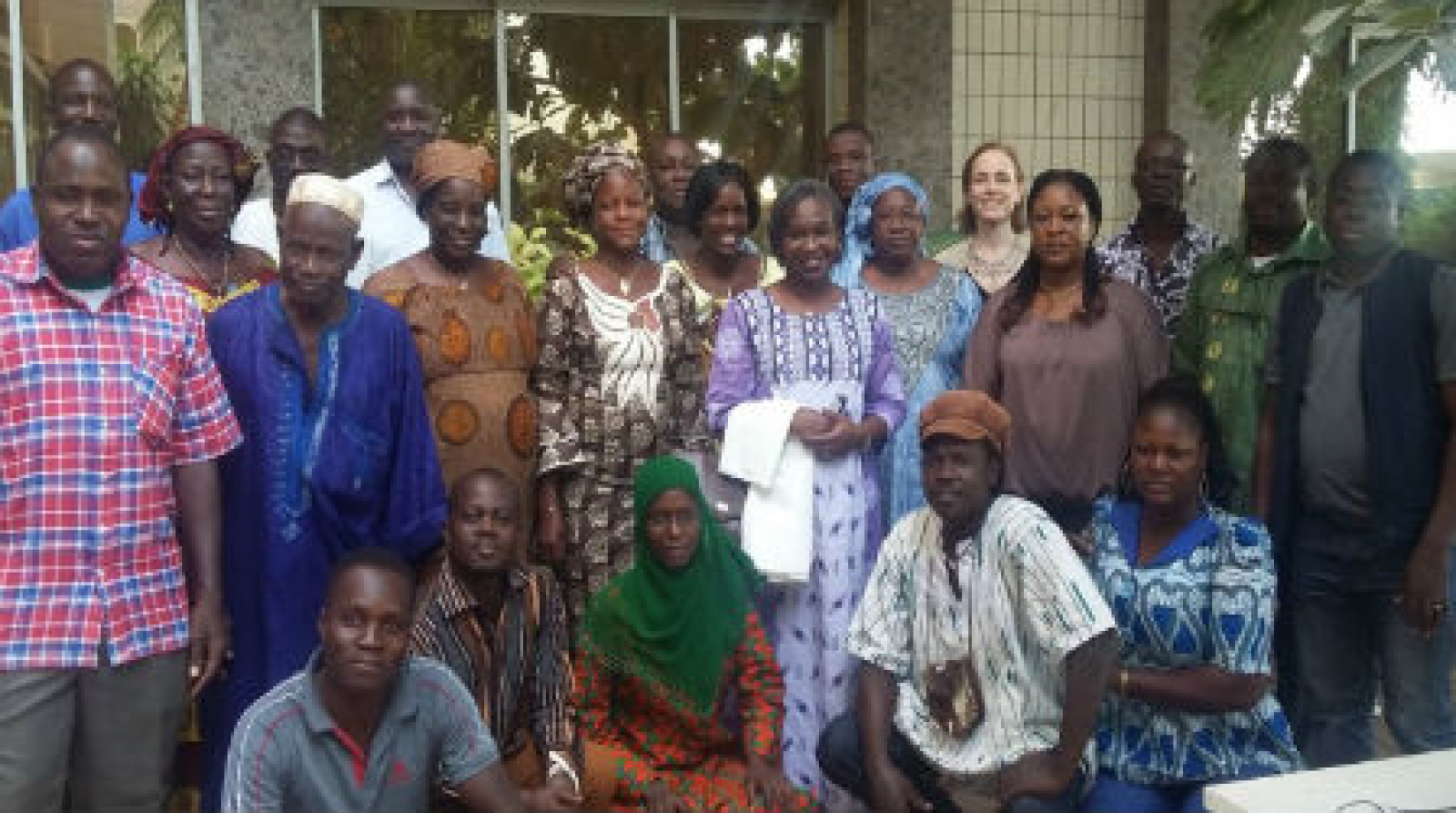
SHARE
In the run up to Burkina Faso’s first ever multi-party legislative and presidential elections on Oct. 11, voters report being most concerned about their daily economic and social well-being. They also revealed that they want to contribute to the democratic process alongside their elected leaders and take an active role in the country’s reform process, according to focus group research conducted by NDI in February.
The research aimed to identify citizens’ public policy concerns so they could be shared with candidates seeking to understand voters’ priorities as they develop their campaign platforms.
“Election campaigns are privileged moments of dialogue between political actors and citizens,” said Aminata Kassé, NDI’s country director in Burkina Faso. “By organizing these focus groups, one of our goals was to help ensure that the true interests of citizens are at the center of debate.”
Four hundred participants from seven of 13 regions across Burkina Faso took part in the study, with a total of 32 focus groups each composed of 11 to 17 participants. Most groups were split by gender, including 13 groups composed of men, 15 of women and four mixed. The research was conducted in partnership with the Center for Citizens’ Monitoring and Analysis of Public Policies (Centre de suivi et d’analyses citoyens des politiques publiques - CDCAP) and NDI focus group research specialist Andrea Levy.
The researchers asked participants about the current political climate in Burkina Faso, their expectations for the future, key gaps in social and economic development, attitudes about democracy and the operation of the political system, and the role of women and youth in politics.
Most participants considered the country to be heading in the wrong direction, citing worsening socio-economic and political conditions. Corruption, lack of integrity among leaders, gaps in health and education programs, and pervasive ethnic favoritism among political leaders were among their top concerns.
While most participants held a generally positive view of the transitional government, which was put into place following the ouster of President Blaise Compaoré in October 2014, many had doubts about its ability to deliver on promises, particularly pledges regarding raising standards in health and education.
“I think it is too early to judge the transitional government. It has not yet been able to implement its plan,” said a young woman from the Est region near Fada N’gourma in the northeast of the country.
Most respondents expressed a commitment to vote, engage elected officials in public debates, and support campaigns and voter education programs. The Burkinabe people demonstrated a strong grasp of political processes, and a large majority did not consider Burkina Faso to be a full-fledged democracy.
“Democracy is a permanent quest. We have democratic institutions that do not function democratically,” said a middle-aged man from the Boucle du Mouhoun, a region in the northwest of Burkina Faso.
Most participants understood the role of political party platforms in representing citizens’ interests. Many said that parties need to do more to embody the will of the people instead of making false promises to secure votes.
The research also found that most citizens see the need for a new constitution to impose stricter presidential term limits, curb the powers of the executive branch, ensure greater separation of powers between the branches of government, and enforce the law and administer justice fairly.
Respondents unanimously recognized the need to expand both the number of seats in parliament and roles available for women and youth in politics. Women and youth make up the majority in Burkina Faso, representing 51 and 60 percent of the population, respectively, but only 19 percent of parliamentary seats are held by women. Participants stressed that leaving a constituency of this size out of the political process would hinder the country’s path to political and socio-economic development.
“Women are part of society. If we decide to do politics by putting aside half of the society, it is not going to work out,” said a young man from the Est region.
“The youth is the spearhead of a country, and it is very normal for it to be part of politics. If the youth is excluded from politics, then there are no politics,” said a young woman from Kaya, the largest city of central-north region of Sanmatenga.
NDI will use the research in policy development workshops with political parties to draw attention to voters’ priorities, emphasizing that the Burkinabe people are eager to play an integral role in shaping their country’s democratic development.
“Public opinion research ensures greater participation by citizens in the political process and helps make parties more responsive to the citizens.” said Levy.
Published on July 6, 2015


